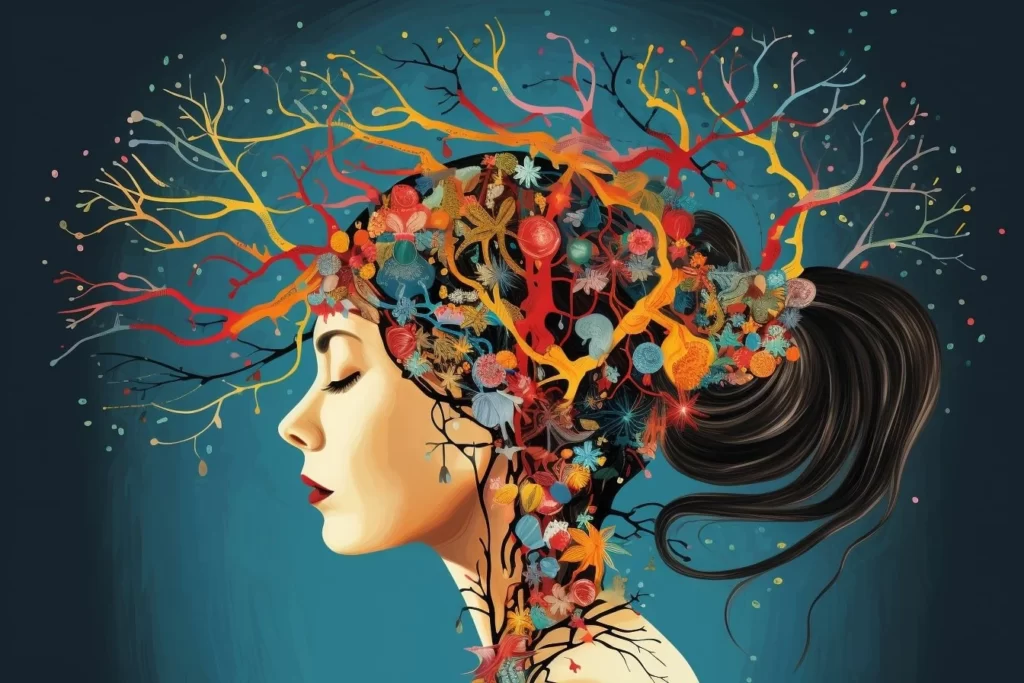Caffeine, a naturally occurring stimulant found in various beverages and foods, is a daily companion for many people worldwide. Whether it’s your morning coffee, an afternoon energy drink, or a late-night soda, caffeine plays a significant role in modern life. But how much caffeine is too much, and what are the potential consequences of excessive consumption? In this comprehensive guide, we will explore the world of caffeine, its effects on the body, recommended intake levels, and the signs that you may have crossed the threshold into excessive caffeine consumption. Let’s know how much caffeine is too much and how to cut it back to normal consumption!
Also Read: How much Cardio is too much? Make Your Cardio Perfect!

The Basics of Caffeine
Caffeine is a central nervous system stimulant that can temporarily ward off drowsiness and restore alertness. What it does is to block the action of adenosine, a neurotransmitter responsible for promoting sleep and relaxation. When adenosine is inhibited, you feel more awake and alert.

In coffee beans, tea leaves, cocoa beans, and kola nuts, caffeine is naturally present which is why, people need to sip a cup of coffee to work late night even after being tired. It’s also added to many beverages and medications. Here are some common sources of caffeine:
– Coffee
– Tea
– Energy drinks
– Soda (cola)
– Chocolate
– Some medications (e.g., pain relievers, cold and allergy medications)
How Much Caffeine is Safe?
The safety of caffeine consumption depends on various factors, including individual sensitivity, age, and overall health. The Food and Drug Administration (FDA) provides some guidelines for caffeine intake, but it’s important to note that individual tolerance can vary widely. Here are some general recommendations:

For Adults
The FDA suggests that most healthy adults can safely consume up to 400 milligrams (mg) of caffeine per day, which is roughly equivalent to four 8-ounce cups of brewed coffee. So, your answer to – how much caffeine is too much, is that more than 400 mg can be considered excessive amount for most average and healthy individuals. However, it still depends on person to person which is why you don’t want to discontinue reading this article till the end.
For Pregnant Women
Pregnant women are advised to limit caffeine intake. Many health experts recommend staying below 200 mg per day during pregnancy, as excessive caffeine consumption may be associated with adverse pregnancy outcomes.

For Children and Adolescents
The effects of caffeine on children and adolescents are less well-studied. However, many experts recommend that children and teens consume minimal caffeine or avoid it altogether.
Individual Sensitivity
Some people are more sensitive to caffeine’s effects and may experience side effects like anxiety, jitters, or sleep disturbances at lower doses. In such cases, limiting caffeine intake is advisable.
The Risks of Excessive Caffeine Consumption!
We know that in anything and everything in life, moderation is key. Caffeine consumption is not an exception. Moderate caffeine consumption is generally considered safe for most people but naturally, excessive intake can lead to a range of health issues and side effects. Here are few potential health risks and side effects associated with consuming too much caffeine.
Don’t Miss: 15 Benefits of Apple Cider Vinegar for Overall Health!

Insomnia and Sleep Disturbances
One of the most common side effects of excessive caffeine intake is insomnia or difficulty falling asleep. Caffeine is a central nervous system stimulant that has the ability to interrupt the body’s natural sleep-wake cycle. Consuming caffeine, especially in the afternoon or evening, can lead to restless nights and disrupted sleep patterns.
Jitters and Anxiety
High doses of caffeine can induce feelings of jitteriness, nervousness, and anxiety. Some individuals are more sensitive to caffeine’s stimulant effects, and even moderate amounts can lead to increased anxiety. Excessive caffeine consumption may exacerbate symptoms of anxiety disorders.
Digestive Issues
Caffeine can stimulate the production of stomach acid, potentially leading to digestive problems such as acid reflux, heartburn, or gastritis. People with gastrointestinal conditions may be more prone to these issues with excessive caffeine intake.

Heart Palpitations
Overconsumption of caffeine can result in an elevated heart rate, irregular heartbeats, or palpitations. For individuals with certain heart conditions, excessive caffeine can pose a particular risk.
Increased Blood Pressure
Caffeine can temporarily raise blood pressure by stimulating the release of adrenaline. While this effect is usually mild, excessive caffeine intake may contribute to sustained high blood pressure, which is a risk factor for heart disease and stroke.

Dependency and Withdrawal
Regular consumption of caffeine can lead to physical dependence, as the body becomes accustomed to its presence. Abruptly reducing or eliminating caffeine intake can result in withdrawal symptoms, including headaches, fatigue, irritability, and difficulty concentrating. Dependence can create a cycle of needing caffeine to feel alert, followed by withdrawal symptoms when it’s not consumed.
Osteoporosis Risk
Some studies suggest that excessive caffeine intake may interfere with calcium absorption in the body. Reduced calcium absorption can potentially weaken bones, increasing the risk of osteoporosis, particularly in individuals with inadequate dietary calcium intake.
Pregnancy Complications
High caffeine intake during pregnancy has been associated with an increased risk of adverse outcomes, including preterm birth and low birth weight. That is why, pregnant individuals are generally advised to limit caffeine consumption to reduce these risks as we already discussed above.
Interference with Medications
Caffeine can interact with certain medications, potentially amplifying or diminishing their effects. Some medications, like stimulants or certain antidepressants, can increase caffeine sensitivity.
Tolerance and Increased Consumption
Over time, individuals may develop a tolerance to caffeine’s stimulating effects, requiring higher doses to achieve the same alertness. This can lead to a cycle of gradually increasing caffeine intake, which may eventually become excessive and cause harm to the body in different ways.
Mental Health Impact
Excessive caffeine consumption has been linked to mental health issues, including exacerbation of anxiety disorders and increased risk of panic attacks. Caffeine may also worsen symptoms of conditions like bipolar disorder and schizophrenia in some individuals.

Dehydration
Caffeine is a diuretic, meaning it can increase urine production and potentially lead to dehydration. Consuming excessive caffeinated beverages without adequate water intake can exacerbate this effect.
Signs to know: How much Caffeine is Too Much?!
Recognizing when you’ve crossed the line from moderate to excessive caffeine consumption is crucial for your health and well-being. Here are some key signs that will let you know about how much caffeine is too much for your body.
Also Read: 8 Benefits of Orange Juice That Will Amaze You!

Difficulty Sleeping
If you find it challenging to fall asleep or stay asleep, even when you’re tired, excessive caffeine intake could be a contributing factor because as we already mentioned, caffeine can disrupt body’s natural sleep-wake cycle.
Increased Anxiety
Persistent feelings of restlessness, nervousness, or anxiety may indicate that you’re consuming more caffeine than your body can comfortably handle.
Digestive Discomfort
If you experience frequent stomach-aches, acid reflux, or gastrointestinal discomfort, excessive caffeine may be to blame. However, there could be many other reasons for digestive discomfort but if you know that your caffeine intake is out of limit then you should try lowering it into moderation to notice any betterment.
Frequent Urination
Excessive caffeine is a diuretic, meaning it can increase urine production and lead to more frequent trips to the restroom. So, if you feel like you are spending more time in the restroom than usual, you need to keep in check your caffeine intake.
Heart Palpitations
If you notice your heart racing or experiencing irregular beats, it’s essential to consider whether caffeine consumption is a factor especially if you have any heart complications or certain heart conditions.

Headaches
While caffeine withdrawal can cause headaches, so can excessive caffeine intake. If you regularly experience headaches, it’s worth evaluating your caffeine consumption.
Dependency
If you find it challenging to function without a daily dose of caffeine, it may be a sign of dependency and dependency means you are consuming excessive amount of caffeine.
Therefore, these are some key signs that will help you to know how much caffeine is too much for your body. If you find any of these signs in your body, it’s necessary to check your caffeine consumption because there could be a high chance that you are taking more than enough caffeine.
How to Cut Back on Caffeine
If you suspect you’re consuming too much caffeine or experiencing negative side effects, here are some strategies to help you cut back.
- Reduce caffeine intake gradually to avoid withdrawal symptoms. Start by cutting back on one source of caffeine at a time.
- Replace caffeinated beverages with water or herbal teas to stay hydrated.
- Don’t forget to check the packages to look for the hidden caffeine content in certain beverages.
- Avoid caffeine in the hours leading up to bedtime to promote better sleep.
- Pay attention to how your body responds to caffeine, and adjust your consumption accordingly.
- If you’re struggling to cut back on caffeine or experiencing severe side effects, consult a healthcare professional for guidance and support.
Conclusion
Caffeine is a widely consumed stimulant that can provide alertness and energy when used in moderation. However, excessive caffeine consumption can lead to a range of health issues, including insomnia, anxiety, digestive problems, and more. It’s essential to be mindful of your caffeine intake, listen to your body’s signals, and adjust your consumption as needed to maintain a healthy balance. By staying within recommended limits, you can enjoy the benefits of caffeine without the potential risks of overindulgence. Hopefully, you found your answer to how much caffeine is too much. If you really found this article helpful enough, let us know your valuable thoughts in the comment section below. Thanks for visiting and appreciating our work.
